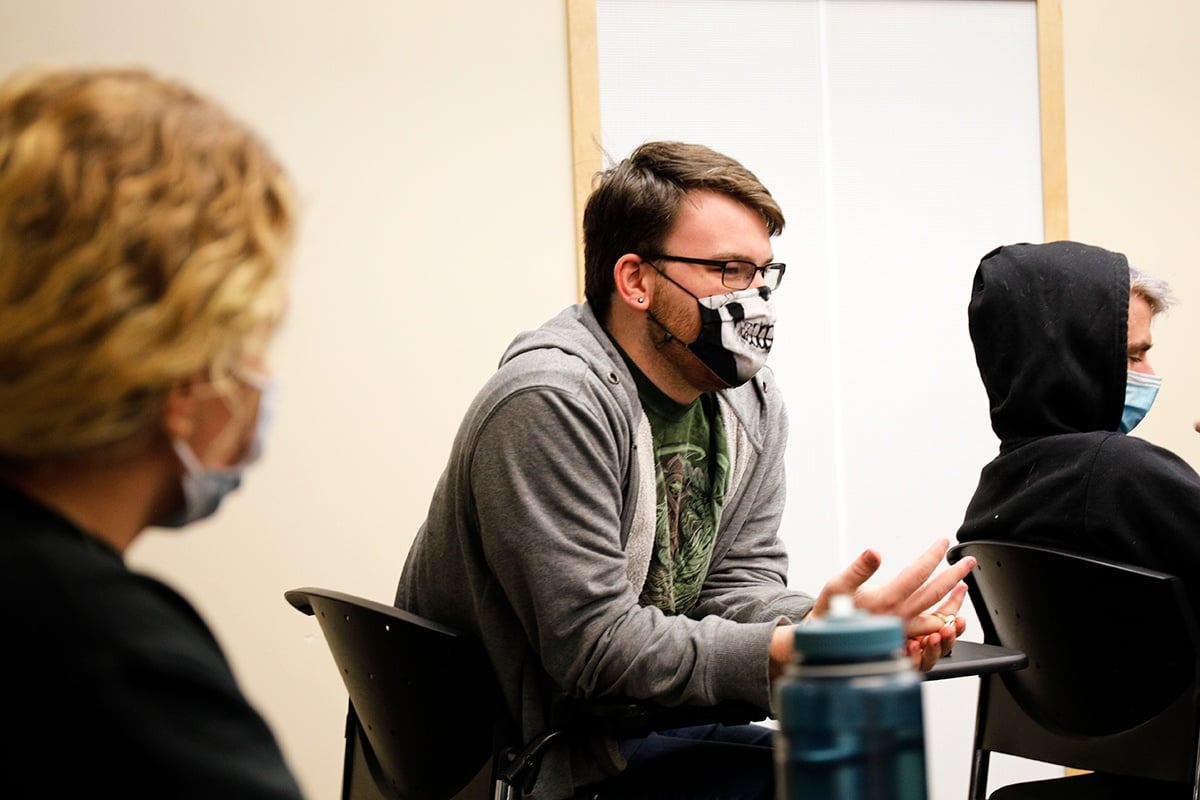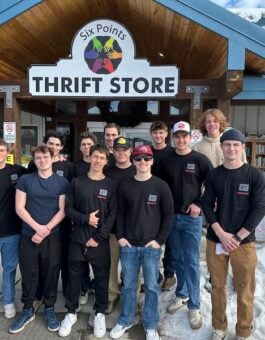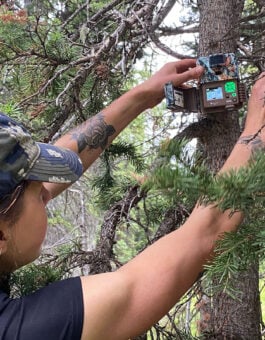Dissecting the Philanthropy Process
Sometimes philanthropy is a little like the cart before the horse—one finds a charity or nonprofit to assist, only to justify the reasons later. Often, it’s more of a “gut” decision.
But Honors Program Director Kelsey Bennett, PhD., and lecturer in Honors Karen Hausdoerffer, M.F.A., wanted to change that dynamic with the Honors 200 Forum course.
The Honors Forum is an application of the core values of the Honors Program including citizenship and community, experiential learning, interdisciplinarity, risk taking and autonomy. Students together develop a research question and engage in active community service-based investigations to complement the exchange of ideas and research to address their question.
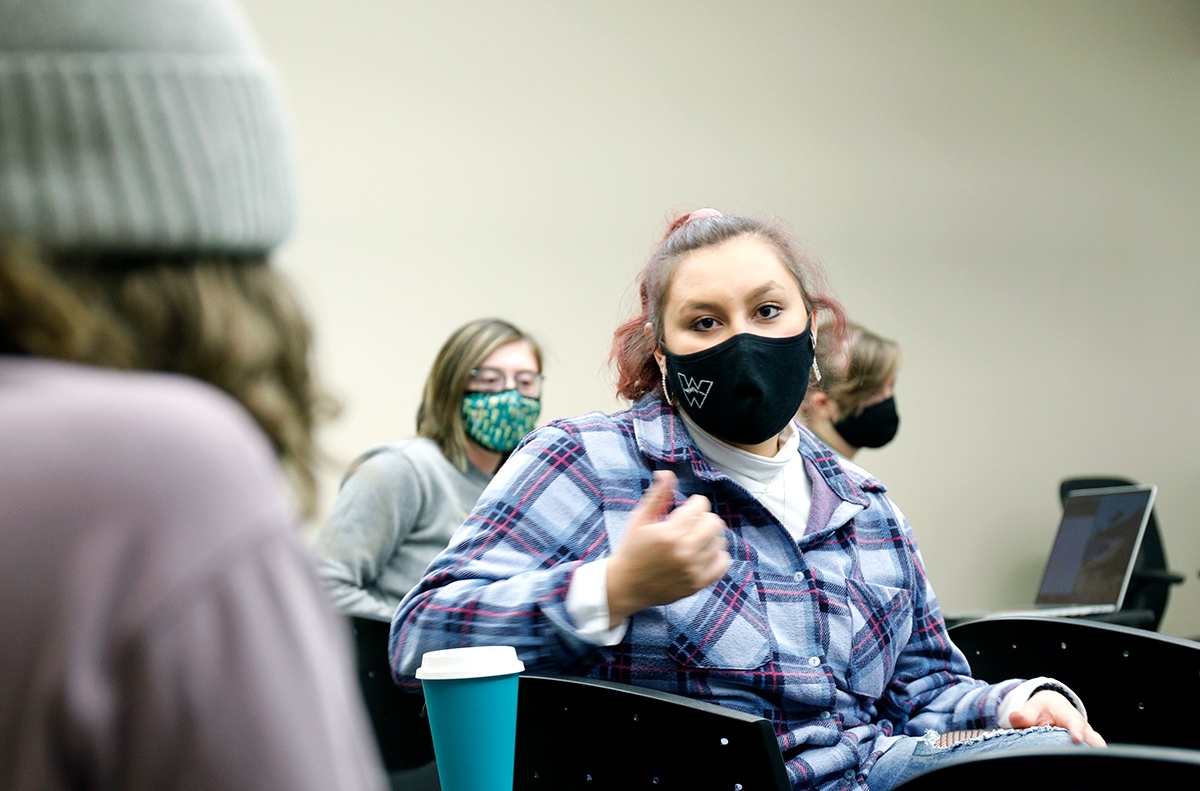
A Values-First Exercise
To compliment the service-learning component of the course, Hausdoerffer included the study of philanthropy as a part of the students’ engagement. Rather than have the class pick a nonprofit to which they would donate, Hausdoerffer had students determine their values first, then find an organization that fit those qualities. The process led to robust discussion regarding the art of giving and whether establishing a formula of worthiness was the best approach.
“Most students felt uncomfortable with cold calculations,” said Hausdoerffer of the process. “We give because of something personal within us. But this created a culture of conversation, kind and respectful. It was more about ideas, and choosing why an organization works best for you.”
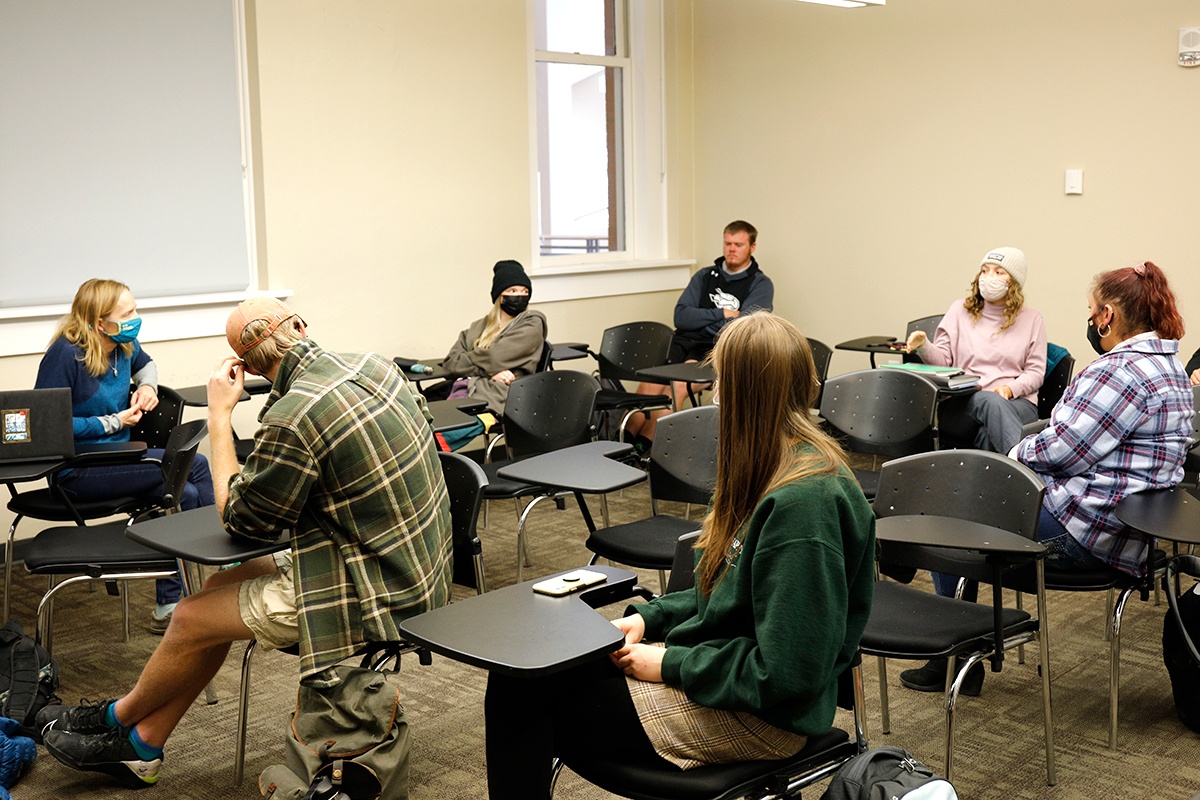
The Theory of Giving and Effective Altruism
Students read and studied the theory of giving, and effective altruism—doing the most amount of good for the most amount of people. Then they identified that they all wanted to give to local organizations.
“I really wanted to see the impact from what we were doing,” said Isabel Stollsteimer, an Honors Forum student.
The class narrowed their list of organizations to three choices: The first was the Gunnison Pioneer Museum, which does not get a lot of financial contributions and therefore any monetary contribution would go a long way. The next was the Center for Mental Health, which brings critical mental health services to the local community. The last was Earthjustice, self-described as “the legal backbone for the environmental movement.”
Making the Selection
Discussion ensued about choosing between Pioneer Museum and Center for Mental Health, and it was decided that mental health services were not only a high priority, but the money would be used locally and go directly into helping patients.
Ultimately, the group chose to donate to the Center for Mental Health along with Earth Justice.
“Hearing everyone talk about how the Center for Mental Health was understaffed, and hearing how these services are a bigger priority, especially for freshman, helped me support the decision,” said Chloe Edwards, who originally favored the museum.
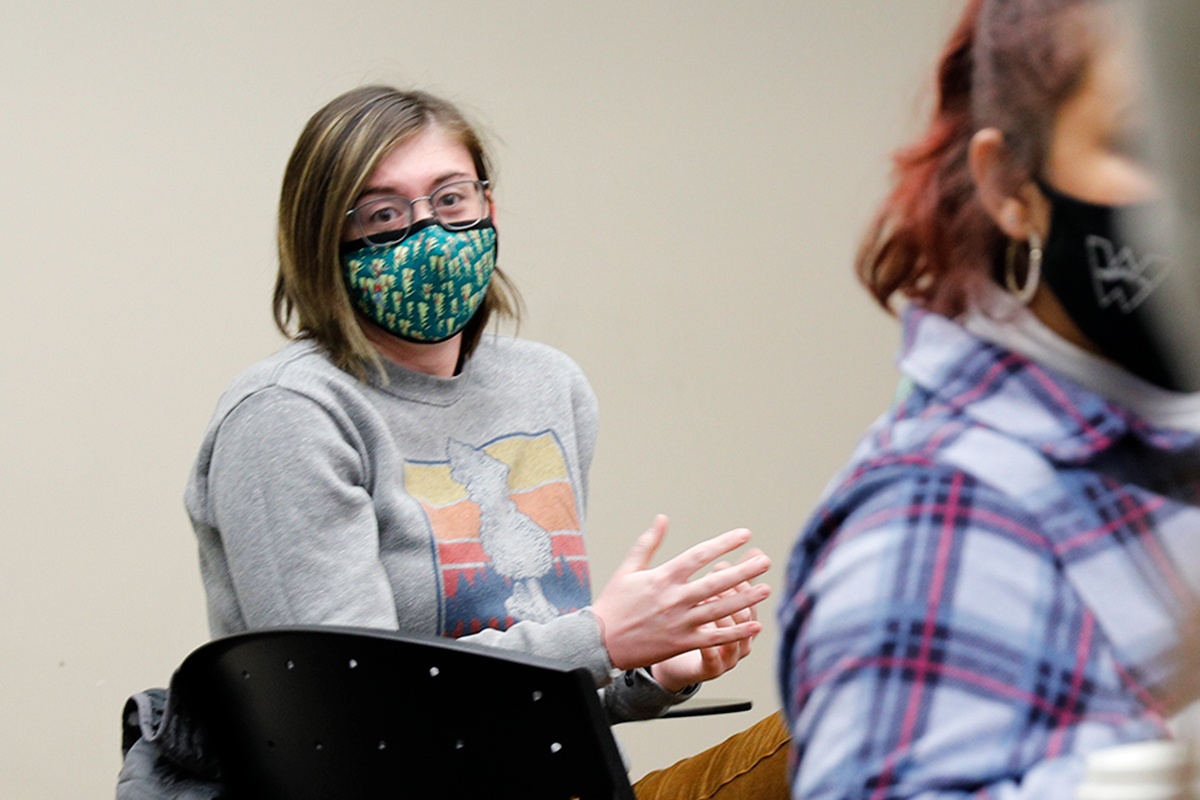
Building the Skills and Ethics of Volunteerism
Hausdoerffer said she hopes the take-away from the process will be one that lasts students a lifetime—that it helps them form a basis for effective giving, shaping their efforts for years to come.
“It’s determining what you enjoy and then building the skills and ethics of volunteerism,” said Hausdoerffer. “Everyone has been enthusiastic—the students take on a lot academically so to have something to get them from out behind the computer, and building a structure for future altruism—that’s great.”
Learn more about the Honors Program at Western Colorado University.
Author Credit: Chris Rourke
Photo Credit: Chris Rourke
